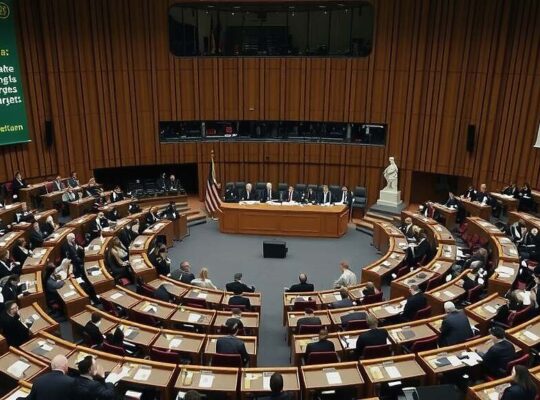The German Bundestag is poised to vote this Thursday on a legislative package dubbed the “Construction Accelerator” a move championed by Housing Minister Verena Hubertz (SPD) as a crucial step towards increasing affordable housing. Hubertz, in remarks to the “Rheinische Post”, expressed confidence that the initiative, focused on facilitating denser development, building expansions and repurposing existing structures, would expedite construction timelines and ultimately alleviate the current housing shortage. However, the bill is facing considerable scrutiny and criticism from both the opposition and within the political spectrum, raising serious questions about its true impact and potential unintended consequences.
While the SPD government positions the “Construction Accelerator” as a necessary boost, the CDU/CSU bloc views it as merely a preliminary measure. Jan Marco Luczak, parliamentary spokesperson for housing and construction for the CDU/CSU, emphasized that a more comprehensive overhaul of the Building Code is already in preparation. Luczak argued that a fundamental streamlining of building regulations is essential for truly achieving speed and efficiency in the construction sector, suggesting the current bill is a superficial fix.
The Left party has articulated particularly sharp criticism, labeling the initiative “volatile” and warning that it risks exacerbating the very housing crisis it purports to solve. Katalin Gennburg, the Left’s spokesperson for housing policy, voiced concerns that the “Construction Accelerator” will disproportionately benefit profit-driven investors. Gennburg specifically cautioned against the potential for increased land speculation, leading to inflated property prices and ultimately pricing out those most in need of affordable housing. She contends the legislation lacks sufficient safeguards to prevent opportunistic exploitation and prioritizes developer interests over societal needs.
The debate highlights a fundamental divergence in approaches to addressing Germany’s housing challenges. While the government seeks a rapid solution through adjusted regulations and streamlined processes, critics argue a more systemic and equitable strategy is required – one that tackles the root causes of the crisis, including land speculation and the prioritization of profit over social welfare. The Bundestag vote will serve as a significant test of the government’s commitment to truly addressing the affordable housing crisis and will provide crucial insight into the future of German housing policy.












